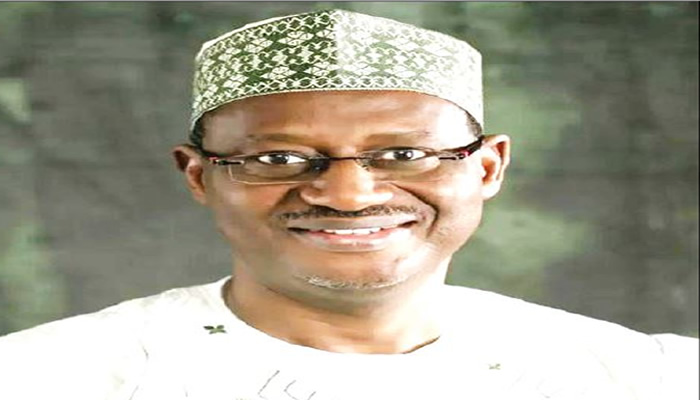The Federal Government of Nigeria has announced its intention to create two million jobs through a national social housing programme, a core element of its post-pandemic economic recovery plan. This initiative is aimed at addressing the dual challenges of unemployment and Nigeria’s housing deficit, which is estimated at over 20 million units. The programme, according to government officials, will be executed through public-private partnerships and is expected to stimulate activity across the construction, manufacturing, and real estate sectors.
Speaking in Abuja during a stakeholder engagement session, the Minister of Works and Housing, Mrs. Aisha Abubakar, emphasized that the housing scheme is more than a building project—it is a tool for economic empowerment. She stated that the programme would involve the construction of hundreds of thousands of low-cost housing units in urban and semi-urban areas, which in turn would generate employment opportunities for artisans, suppliers, technicians, and engineers nationwide. “This is not just about homes, but about livelihoods,” she said, noting that the initiative aligns with the government’s broader agenda to reduce poverty and boost economic inclusion.

The initial phase of the project will begin in 10 pilot states including Lagos, Kaduna, Rivers, the Federal Capital Territory, Ogun, Oyo, Kano, Enugu, Anambra, and Bauchi. Each site is expected to house between 300 to 1,000 housing units, with the potential to scale depending on funding and land availability. The homes are primarily intended for low- and middle-income earners, with units expected to be completed within 18 to 24 months. The government aims to ensure affordability by working with developers and mortgage banks to provide cost-effective housing and flexible payment options.
The jobs generated from the programme are expected to span multiple sectors. Direct construction jobs will include masons, carpenters, welders, plumbers, and bricklayers. Indirect employment will arise from the production and supply of construction materials such as cement, tiles, roofing sheets, paints, and fittings. Additionally, service jobs related to logistics, food supply, estate management, and site security will also benefit. Industry analysts estimate that each 500-unit estate could create over 2,500 direct and indirect jobs, meaning the job target is feasible if the project scales nationally.
To finance the initiative, the government plans to blend budgetary allocations with support from the Central Bank of Nigeria, the Federal Mortgage Bank of Nigeria (FMBN), and international development agencies. Eligible beneficiaries will access home ownership through the National Housing Fund, which allows contributors to obtain low-interest mortgage loans over 10 to 15 years. In addition, a viability gap funding mechanism has been introduced to assist developers in managing costs without compromising quality or raising house prices beyond the reach of average Nigerians.
The government has also approached private developers and investors to co-invest in the delivery of infrastructure such as roads, water, and electricity to the housing estates. Some of the country’s major property developers, including Mixta Africa and Urban Shelter, have expressed interest in partnering with the state governments and housing agencies to deliver affordable units efficiently. The use of local materials and labor is also being encouraged to deepen the economic impact and retain capital within the Nigerian economy.
However, while the proposed benefits are significant, experts caution that the programme’s success depends on implementation discipline and transparency. Stakeholders have raised concerns about possible bottlenecks in land acquisition, cost overruns due to inflation, and weak mortgage repayment culture among low-income earners. There are also fears that the houses might eventually be hijacked by political elites unless strong safeguards and monitoring systems are in place. Civil society groups have urged the government to publish beneficiary selection criteria and ensure public oversight during the contracting and disbursement phases.
In response to these concerns, the Ministry of Works and Housing has revealed plans to set up a monitoring and evaluation unit under the Office of the Vice President. The unit will track progress, assess project outcomes, and ensure compliance with delivery timelines and quality standards. External auditors will also be invited to review contract awards and fund utilisation, while community-based organisations will be empowered to serve as watchdogs on project sites.
The project is also expected to support the financial inclusion drive by encouraging participants to open and operate bank accounts, access mortgages, and pay for services digitally. It aligns with other economic policies aimed at formalising the informal economy and extending financial services to underserved populations. With Nigeria’s youth unemployment rate still high, the social housing programme is being seen as a timely and targeted intervention capable of delivering both social and economic benefits.
If successfully executed, the initiative could serve as a model for integrated housing and job creation efforts in other parts of Africa. Government officials are hopeful that by 2026, millions of Nigerians will not only be living in decent homes but also earning stable incomes through work tied to the programme. The long-term objective is to reduce inequality, stimulate local enterprise, and strengthen social cohesion through increased homeownership and economic opportunity.
Support InfoStride News' Credible Journalism: Only credible journalism can guarantee a fair, accountable and transparent society, including democracy and government. It involves a lot of efforts and money. We need your support. Click here to Donate
